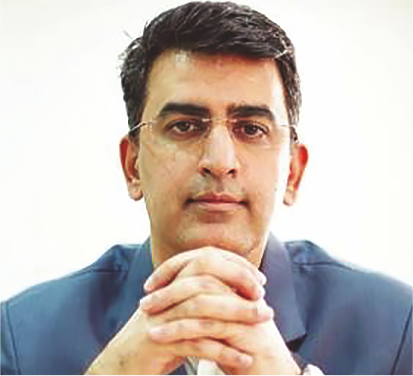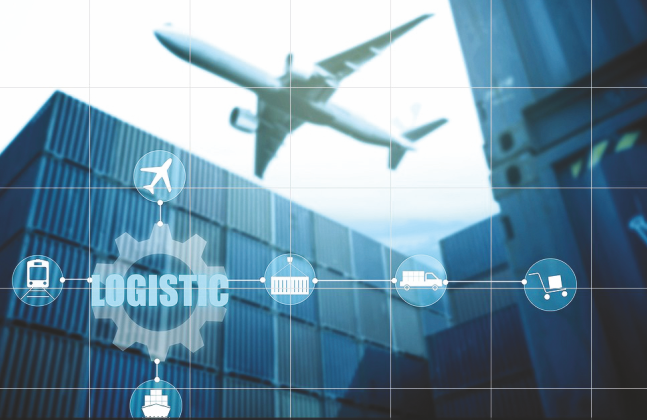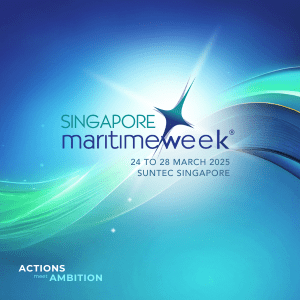TrakIT combines workflow management with the logistics and transportation industry, allowing companies to build their own workflows, shipment corridors and business processes and mold the software to suit their requirements, rather than the other way around.
Arjun Khosla was a Master Mariner sailing on board Maersk vessels as a Chief Officer, when one day he decided to quit his job and take up software development which was his passion. With no formal education in IT, was it a jump into unknown waters? He was contracted by Maersk Tankers and Damco to build in-house solutions for them. The projects were successful and led to numerous more projects. Over the next many years, he continued developing solutions which are still being used, especially in ship-board vetting/inspection management and performance measurement.
TrakIT is one of their flagship products and is being used extensively in the global market by some of the leading logistics companies in the world. It is a product that combines workflow management with the logistics and transportation industry, allowing companies to “build” their own workflows, shipment corridors and business processes and mold the software to suit their requirements, rather than the other way around. Mehul Bhatt, former CCO, of Maersk Logistics said he had used TrakIT to implement workflows for Damco in Africa, which had streamlined a lot of activities. It was cloud-based and was easy to install and use. It was flexible enough to customise as per customer’s requirement. “We wanted to build something that would work for everyone,” Arjun said. “We quickly realized that it would be far better to let businesses define their requirements within the system rather create a ‘cookie-cutter’ product.”
Over the years, TrakIT has evolved to become extremely robust, scalable and so highly customisable that it could be used to manage any workflow-based business, not just logistics and transportation. It is scalable from small organisations to global ones and is versatile enough to define the business structure of any business – from logistics and supply chain to order management and CRM.

Joaquin, Director Finance, R-Logitech, said how TrakIT had enabled them to have full visibility and control over all operations in more than 12 countries across the African continent. TrakIT is most useful in organisations where there are complex workflows to be tracked. Over 30 companies all over the world are using TrakIT. And each had been customised for their own use. Currently, Arjun is concentrating on making TrakIT even more flexible by adding connectivity options, finance systems integrations, API connectivity and extending interfaces to other systems. “We do not just supply the software solution, but as consultants, we also help find and suggest ways to optimise their business processes to help them reduce costs and increase efficiency. We can leverage our experience with different clients and workflows to suggest best solutions to the challenges they face.” His longterm vision is to make TrakIT the most customisable, flexible and lowcost ERP platform for just about any company that wanted it.

Founder Director
Bitmetric Solutions FZ LLC
“TrakIT is scalable from small organisations to global ones and is versatile enough to define the business structure of any organization or business – from logistics and supply chain to order management and CRM.”
DIGITALISE, DON’T JUST DIGITISE

The maritime ecosystem is a glutton for paperwork and much of it can be questioned only if there is willingness to introspect, innovate and most importantly collaborate
Have you heard of the Impossible Burger? If you have not, they are a plantbased alternate that tastes and looks like meat burgers. Since their debut, they have taken the entire world by storm. The burger giants have been shaken up by a rank outsider, a professor of Biochemistry. Both QSR giants like Burger King and retail giants like Kroger have decided to collaborate than compete or ignore. In a consumer world, nimbleness and collaboration is key. Rewind 3 decades back, giant establishments would not have had to worry. Even then, new businesses, especially smart ones would have sprung up out of the blue. But, the market access and scale were out of reach for most new ones. Today, the scenario is entirely different. With access to private capital, Internet and media, growth can catch you unawares so much so that if your competition catches up to it first, you’d be in their rear view mirror pretty fast. Some very traditional industries like banking, healthcare and insurance are being challenged in ways that none of us have imagined. Bitcoin, remote healthcare on smartphone and behavioural insurance are all a reality today.
Maritime ecosystem is not insulated from the same. It would not be far-fetched if I said that globally, maritime industry continues to revel in archaic practices. Since 2015, there has been strong evidence of change in the European, North American and Singaporean port ecosystems. Have the custodians of Indian maritime ecosystem introspected about their ability to innovate? Are they in a position to self-disrupt? The answers to these questions are unfathomable if you see status-quo as acceptable. It is only possible if every stakeholder within this ecosystem questions on their very purpose of existence. How could they become the best version of themselves and also extend their usefulness beyond to their valuechain?
My team and I have had an opportunity to work in digital transformation for an Indian bulk cargo port. The initial instructions to us unfortunately were to digitise the paperwork, not digitalise the process. There is a vast difference between the two. The former is to move from analogue to digital. For example, filling a form vs filling a paper, paying electronically vs cash/cheque or attaching scanned documents instead of physical copies. The later is to really question whether there is a need for the paperwork at all. Let me delve into further specifics. When a vessel calls an Indian port, most ports require reams of paperwork to be submitted with regards to vessel ownership, certificates of compliance, etc. via online/offline means. The agent community diligently submits the same to port authorities. Once submitted, have we questioned who “validates” the authenticity of these vessel documents before granting the necessary approvals? Has the person/department have access to truly validate these documents from authentic sources or do they just approve based on what is written on the documents? If it’s the later, the entire process is suspect and susceptible to forgery. If it’s the former, it can certainly be digitalised and automated with limited need for these documents.
As a technologist, I feel the maritime ecosystem is a glutton for paperwork and much of it can be questioned only if there is willingness to introspect, innovate and most importantly collaborate with open arms. It was endearing to see the news of Maersk tie up with Blackbuck, a startup that is changing the trucking industry. While the results will be evident in times, collaboration requires each to help the other to become successful. Have you recently asked for help? If not, please do.








